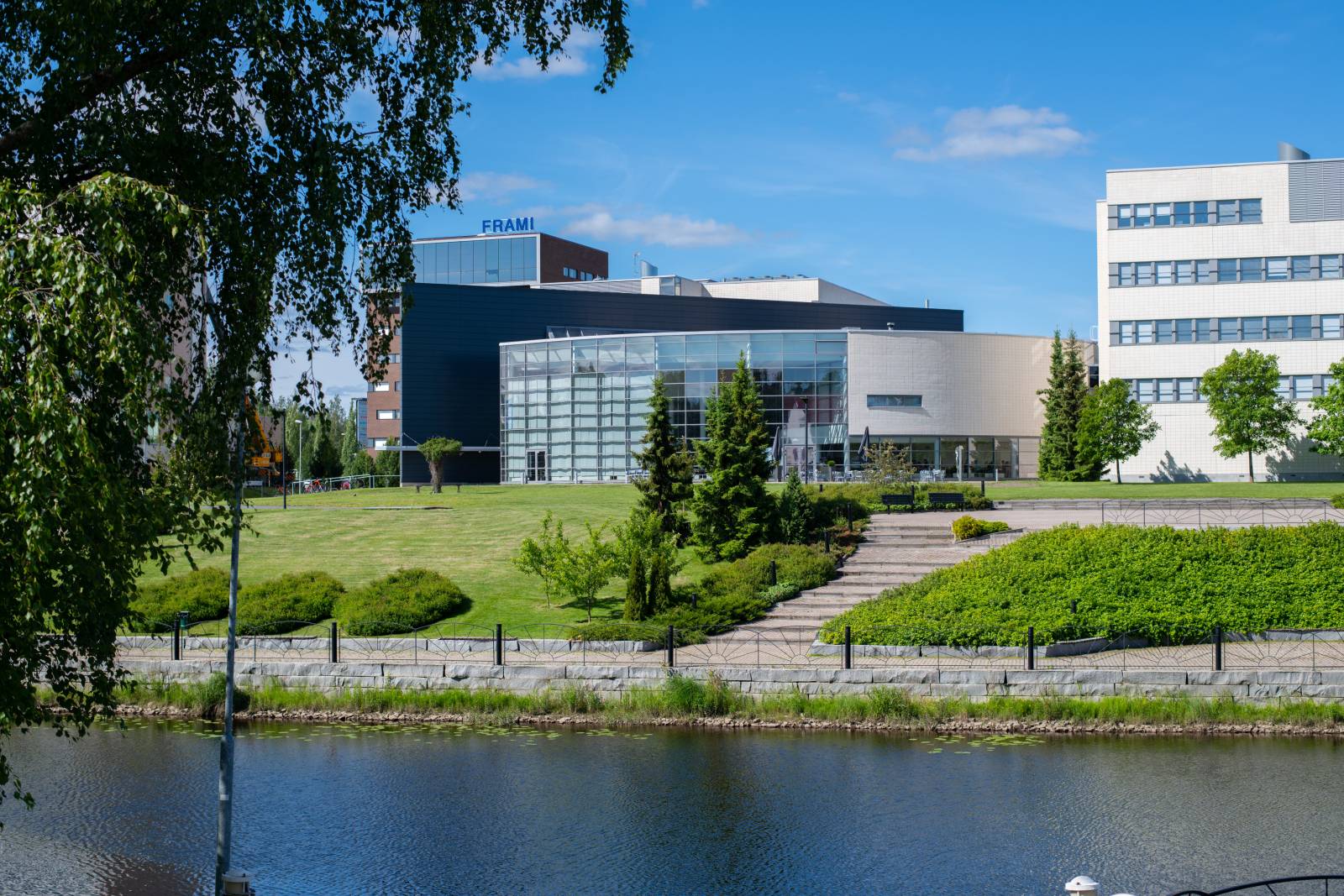As set out in UCS’s research strategy, we are committed to conducting high-quality research with societal relevance. We employ interdisciplinary and multidisciplinary research methods and explore new avenues of research. We provide our researchers with an interactive working environment which comprises multidisciplinary universities, higher education institutions, business and service developers, and policymakers.
Education activities focus on continuous learning services to adult learners. Virtually all our students work alongside their studies. Our programmes combine academic and professional education. We design and implement our programmes, especially our growing range of degree programmes, in collaboration with our parent institutions.
In August 2021, we hosted the traditional UCS conference banquet at Art and Culture Center Kalevan navetta in Seinäjoki. The keynote speaker was Minister of Science and Culture Antti Kurvinen. In September, we gave the Education and Culture Committee of the Finnish Parliament a tour of UCS. The visit was organised in collaboration with the Regional Council of South Ostrobothnia, the City of Seinäjoki and Seinäjoki University of Applied Sciences.
In the autumn, the Ministry of Education and Culture awarded an additional grant for developing university consortia in Finland. UCS’s share of the funding, amounting to €531,000, will be used to launch new study programmes in different fields.
Research
UCS is a thriving research, development and innovation community. In 2021, there were 22 research groups led by a professor or an experienced researcher at UCS. We receive the majority of funding for our professorships from companies, municipalities, foundations or regional development organisations. Professorships are also supported by UCS and our member universities. We receive funding from more than 100 organisations. Our professors‘ support groups convene regular meetings that bring together our funding providers and research groups. During the Covid-19 pandemic, meetings were primarily organised in a virtual format. Although virtual meetings tend to be less interactive, we were able to turn new ideas into reality and, for example, organised a workshop to envision the future of a specific industrial sector.
Tampere University’s Professor Mark van Gils, who specialises in digital healthcare, and the University of Helsinki’s Senior Researcher Silvia Gaiani, whose area of expertise is the role of innovation and entrepreneurship in the development of sustainable food systems, took up their appointments in 2021. They brought an increasingly international perspective to the research groups at UCS. In the autumn, we started preparing a digital roadmap for UCS with funding we received under the Supporting the sustainable growth and vitality of regions (AKKE) programme. In addition, we carried out the New Knowledge Interface project, which was partially funded by the European Regional Development Fund (ERDF), to gain a deeper understanding of an ecosystemic approach to development activities and create new models for interacting with our parent institutions, initially with Tampere Universities.
Our research productivity, which is especially affected by the introduction of new EU framework programmes, remained unchanged from the previous year. We saw a notable increase in our research output. What had a positive impact on our research output was the fact that most of our research group leader positions were occupied, meaning that experienced researchers participated in conducting research and authoring papers.
Education
We offer master’s programmes, pathway programmes designed to prepare students for university, Open University courses, professional development opportunities and seminars.
Both Tampere University’s Master’s Degree Programme in Digital Manufacturing and the University of Vaasa’s Master’s Degree Programme in Start-up Management were nearing completion in 2021. As new additions to our programme portfolio, we launched Tampere University’s Master’s Degree Programme in Social Work (16 students) and an extended version of the Master’s Degree Programme in Start-up Management (35 students). Both programmes attracted a large number of applicants. In total, 260 persons applied for admission to the redesigned Master’s Degree Programme in Start-up Management, a spike which marked a 55% increase from the previous admissions cycle.
The number of students attending our Open University courses, which represent a major share of our continuous learning opportunities, remained relatively high. We also offer professional development programmes and organise a variety of seminars and events. Although designed in a live online format, events in particular were hard hit by the Covid-19 pandemic.
Societal impact
UCS interacts with the wider world in a variety of ways. Our research groups maintain regular contact with external stakeholders. The collaboration group on higher education policy convened twice in 2021. The meetings were scheduled for the same days as the Presidents’ Meeting. Representatives of all our key stakeholder groups serve on the collaboration group.
We try out new forms of interaction each year. In 2021, we tested a virtual workshop concept in cooperation with international partners. The goal is to develop a collaborative platform for the food industry to promote industry-wide collaboration and information sharing. The TAKOOKO project explored the impact of the pandemic of artists, their employment situation and educational needs.
We also participated in organising the anniversary seminar of the Friends of the University of Vaasa Association and Vaasa University Foundation titled Competence and skilled workforce 2030, which took place at UCS in October 2021.
The columns we started writing for the newspaper Ilkka in 2019 (Ilkka-Pohjalainen since 2020) have since become a weekly staple, with 45 columns published in 2021. Our researchers utilize the columns to inform the public about their projects and discoveries. The columns are also published on the blog of the South Ostrobothnian University Network (Epanet), and links to the columns are shared on social media.
We initiated a new type of collaborative arrangement with the South Ostrobothnia Chamber of Commerce, whereby the Chamber of Commerce hosts virtual events where presentations are delivered by professors at UCS. We developed and maintained UCS’s social media presence in cooperation with Epanet.

